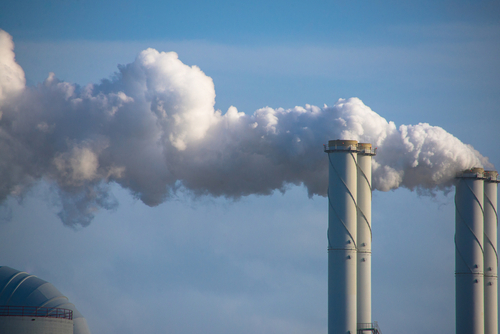
The plan to enlist Pennsylvania in the controversial Regional Greenhouse Gas Initiative (RGGI) was dismissed Tuesday as an ill-conceived idea that would exact a stiff toll on the commonwealth’s energy-based economy at a time when carbon emissions have already been on a steady decline.
This week’s hearing before the state Senate Environmental Resources and Energy Committee featured testimony from business organizations, local school boards and organized labor who all had serious concerns and dire predictions that RGGI and the creation of a carbon tax would saddle currently thriving industries with higher energy prices, erase scores of high-paying jobs and shatter local tax bases.
It was a price, the witnesses told sympathetic committee chairman Sen. Gene Yaw (R-Lycoming), that should not be laid on western Pennsylvania’s electrical grid, which has managed to significantly trim its carbon footprint in recent years despite being still heavily reliant on coal and natural gas.
“Our issue is not the reduction of carbon emissions, but rather the unnecessary costs that will be imposed on electricity producers and eventually passed down to customers,” said Rod E. Williamson, executive director of the Industrial Energy Consumers of Pennsylvania (IECPA), a trade organization representing large companies that are major consumers of electricity. A major concern of the group is the cost of power, which can be a major percentage of a companies’ overhead.
“The data suggests that carbon-reduction goals can be attained without a cap-and-trade program like RGGI,” Williamson said.
The Aug. 25 field hearing, convened at a union hall in Pittsburgh, was held in advance of Gov. Tom Wolf’s Sept. 15 deadline for the Department of Environmental Protection to produce a set of rules that would allow Pennsylvania to join the RGGI and commit the state to a program that the Republican Caucus has predicted will force as much as 30 percent of the state’s electric generation capacity to shut down.
Williamson referred to an analysis released by the IECPA in June, which was based on data crunched by Wall Street analysts. The report estimated that joining RGGI would result in another $6 added to the cost of a megawatt hour (MWh) of coal-generated electricity and $2 per MWh for gas-generated hours. And while Pennsylvania’s energy sector would be the largest carbon emitter by far in RGGI, the state was already on the right track with an impressive 22.8-percent reduction in carbon emissions between 2005 and 2016.
“The cost of renewable energy has come down. We do not need mandates to incentivize the use of green energy,” Williamson told the lawmakers.
PJM, the regional transmission organization that manages the power grid in Pennsylvania and a dozen other states, said in written testimony that while it was in no position to tell states what to do in terms of air quality, its calculations indeed pointed to a possibility that Pennsylvania power exports within the PJM territory could be replaced by power plants in non-RGGI states, specifically in Ohio and West Virginia.
Proponents of RGGI have called the initiative, which includes a carbon cap-and-trade regime for member states, a path to better overall health for Pennsylvanians as well as doing its part to stave off climate change. Tuesday’s hearing, however, was more focused on economic health and the state’s business climate.
Williamson and other speakers, however, told the lawmakers that Pennsylvania was already keeping carbon emissions well within government guidelines. “The data suggests that carbon-reduction goals can be attained without a cap-and-trade program like RGGI,” he said.
The hearing was also focused on the impact that RGGI would have on the population of western Pennsylvania. A panel of union representatives told the committee that power plants that run on fossil fuels in Pennsylvania routinely employed large crews of their members from various trades to perform regular maintenance to huge boilers and other heavy machinery. The shutdown of major plants due to economics was already cutting into their members’ job prospects and forcing these highly skilled workers to take long-term overhaul projects in Ohio and West Virginia, where RGGI restrictions are not an issue.
Shawn M. Steffee, board trustee and business agent for Boilermakers Local Lodge 154 in Pittsburgh, said there was no argument that the power industry was moving away from coal for economic reasons; however, RGGI would unfairly accelerate the closures of legacy power plants rather than give his members some additional years on the job, and perhaps even enable the plants to upgrade their carbon-capture technology and reduce emissions even further.
“We need to let these plants retire at their own pace,” Steffee said, telling the committee that labor would not necessarily go quietly as the RGGI debate continues. “You are not going to push us away from the table,” he said.
On Wednesday, Senate Republicans planned to attend a rally in opposition to the implementation of RGGI at the Cheswick Generating Station in Springdale, Pa. Sen. Yaw will be among the Republican lawmakers in attendance, as will Sen. Camera Bartolotta (R-Washington), Sen. Joe Pittman (R-Indiana), and Sen. Kim Ward (R-Westmoreland).